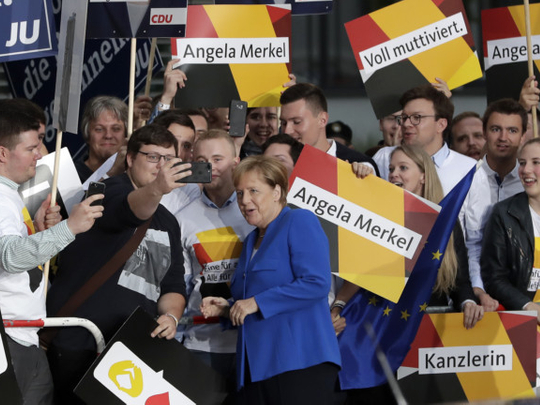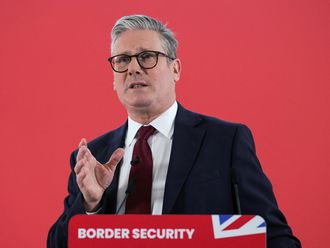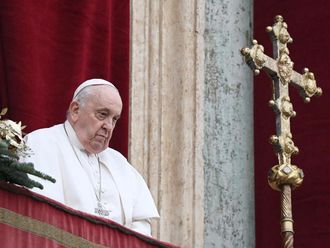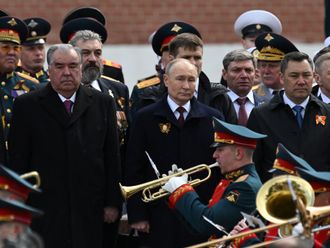
Berlin: German Chancellor Angela Merkel highlighted her government’s achievements in a speech to parliament yesterday, positioning herself as the leader who can cope with rapidly changing world order and technology along with economic challenges as she seeks election to a fourth term later this month.
Merkel, whose conservative Christian Democratic Party is currently leading in polls ahead of the national election on September 24, listed a strong economy, low unemployment, and the introduction of a mandatory minimum wage as some of her administration’s achievements. But she stressed that Germany is “at a crossroads now” especially in digital development and technological progress.
“We don’t want Germany to end in the museum of technology,” she told lawmakers, referring to the Berlin museum housing historical artefacts. The rest of the world “doesn’t sleep” when it comes to digitalisation, she warned.
Pitching herself as the one who can deal with future challenges, she promised that if re-elected as chancellor, she would invest more money into research so that Germany won’t fall behind on technological development.
Turning her attention to international affairs, Merkel condemned North Korea’s latest nuclear test as a “flagrant violation” of international conventions, but also said there can only be a “diplomatic and peaceful solution” of the crisis.
Defending refugee policy
Merkel spoke by telephone Monday night with US President Donald Trump and South Korean President Moon Jae-in, expressing Germany’s support for tougher sanctions on North Korea, according to her office.
In parliament, Merkel also condemned the arrest of more than a dozen German citizens in Turkey for political reasons and said the European Union (EU) needs to reconsider its relations with Ankara.
“Turkey is increasingly leaving the path of the rule of law, sometimes at a very fast pace,” she told lawmakers.
Turning to the issue of refugees, Merkel said a summit between Europe and several African nations will be held later in the year, aimed at finding solutions to stem the flow of refugees by better addressing the causes that force people to flee.
Her speech came two days after the only televised live debate between Merkel and main challenger Martin Schulz of the centre-left Social Democrats.
Merkel has been governing Germany in a coalition with the Social Democrats for the last four years. Both candidates have run lacklustre campaigns, and Sunday’s debate was widely criticised because the two were seen as not being aggressive enough. During the debate, both candidates refused to rule out continuing their current coalition at the national level after the election.
But the mood of pre-election apathy rippled through German media on Monday, as commentators concluded Merkel’s rival for chancellor had blown his best chance of depriving her of fourth term in office.
With three weeks to go until polling day, several national newspapers taking stock concluded that a re-run of the grand coalition of Merkel’s conservatives and challenger Martin Schulz’s Social Democrats (SPD) was likely.
“Angela Merkel and Martin Schulz barely showed any differences in their only direct face-off. Why don’t we just set the grand coalition up again now?” magazine Der Spiegel said on its website, adding the debate would not have changed voters’ existing preferences.
— Agencies












